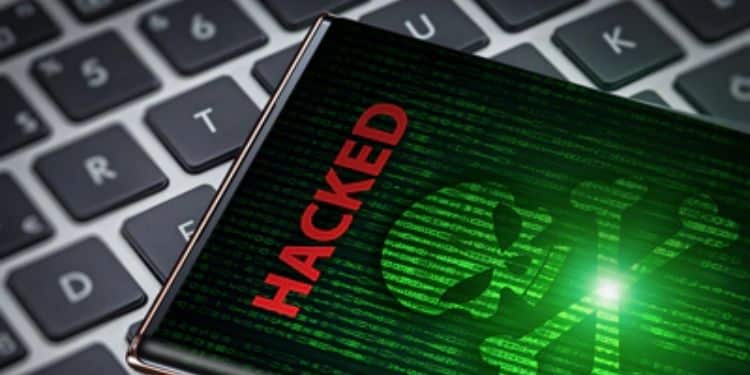Anyone who has a digital device connected to the internet is either intruded or compromised. When you are intruded, it means that someone has access to your device or network.
This is the case for internet users because we frequently log into various accounts, whether for online shopping, health insurance, or signing up for updates from a favorite channel. This makes it easier for another party to intrude your devise.
However, when an intruder gains access to your device and takes control of it for malicious reasons, you have been compromised.
Although emerging technology like AI has made it easier to go about various tasks, the risk to our identity and personal finances has increased greatly.

As Ndung’u Njoroge, Head of Digital Network Services at NTT DATA Middle East & Africa, puts it, our first line of defense is becoming a “human firewall.”
In this article, we’ll dive into some common cyber-attacks that Kenyans face every day and drawing from the expertise of tech experts, guide you on how to stay safe and secure while enjoying your internet experience.
Also Read: Hacker Takes Over Ministry of Health Account as PS Lashes Out
Common Cyber Attacks Kenyans are Facing
Man in the Middle Attack
Some common cyber-attacks Kenyans grapple with everyday include the ‘Man in the middle attack.’
This is commonly referred to as Sim Swap, or an instance where your device is completely taken over by an individual or organization, and malicious transactions continue.
Many Kenyans have reported falling victim to this, especially with the growth of mobile banking.
A tip highlighted during the NTT DATA Middle East & Africa conference that took place on Wednesday, August 14, is to check on the red padlock on your browser.
A red padlock means that the site you are browsing is insecure and exposes you to such attacks when you click on them.
Phishing
This occurs when cyber criminals send you a link with the intention of obtaining information from your device.
These links are sent through emails, websites, or messages that create a sense of urgency.
Examples are “You won 2 million, Click Now to Receive’, You have Been Awarded, Click to See More,’ among others.
However, once you click on the link, you risk identity theft and financial loss.
Also Read: Kenya Beats Nigeria & Ghana Emerging Top in Africa’s Cybersecurity Ranking
How to protect Yourself from Attacks
According to Ndung’u Njoroge, you have to arm yourself by learning the best practices of protection.
That way, an individual or organization can better handle attacks when they happen.
“The biggest area of breach is the human. With education and ensuring compliance and people being aware of phishing and malware and ensuring they stay vigilant is the first step to protection,” Head of Digital Network Services at NTT DATA Middle East & Africa, Ndung’u Njoroge, said.
His remarks were reiterated by Madison Group Limited Network and Security personnel, Peter Simotwa, who warned that it is important to be cautious when browsing online.
According to him, one can stay safe from attacks by remaining suspicious and asking questions when unsure.
“Always be secure and because we are doing our transactions online, we need to be careful about what we download and the links we click.
‘The first thing to do is be suspicious. If you are unsure, ask,” he said.
Moreover, for companies, employers have been advised to conduct continuous training for their workers.
This ensures that they remain more aware of the importance of protecting sensitive information and the best cybersecurity practices.
What Do You Do in Case of Attack?
Network Administrator at DIB Bank, Cliff Parsimei advised that you remain calm in case of an attack.
Although the best practice is to put up security measures to avoid such incidents, an attack can be a learning opportunity.
“We should not be reactive; we should be proactive. If it happens, it means there is a gap.
“However, you should not beat yourself down, because it is a learning opportunity,” he noted.
Cliff uses the narrative of building a house and fencing it, to help us better understand the importance of cyber security.
“You will know how to better handle such situations in the future. It is better to take proactive measures, because for instance,
“If you build a house, you have to fence it. If thieves come and you did not fence your house, then that was a gap,” he explained.
Follow our WhatsApp Channel for real-time news updates!
https://whatsapp.com/channel/0029VaB3k54HltYFiQ1f2i2C











































































